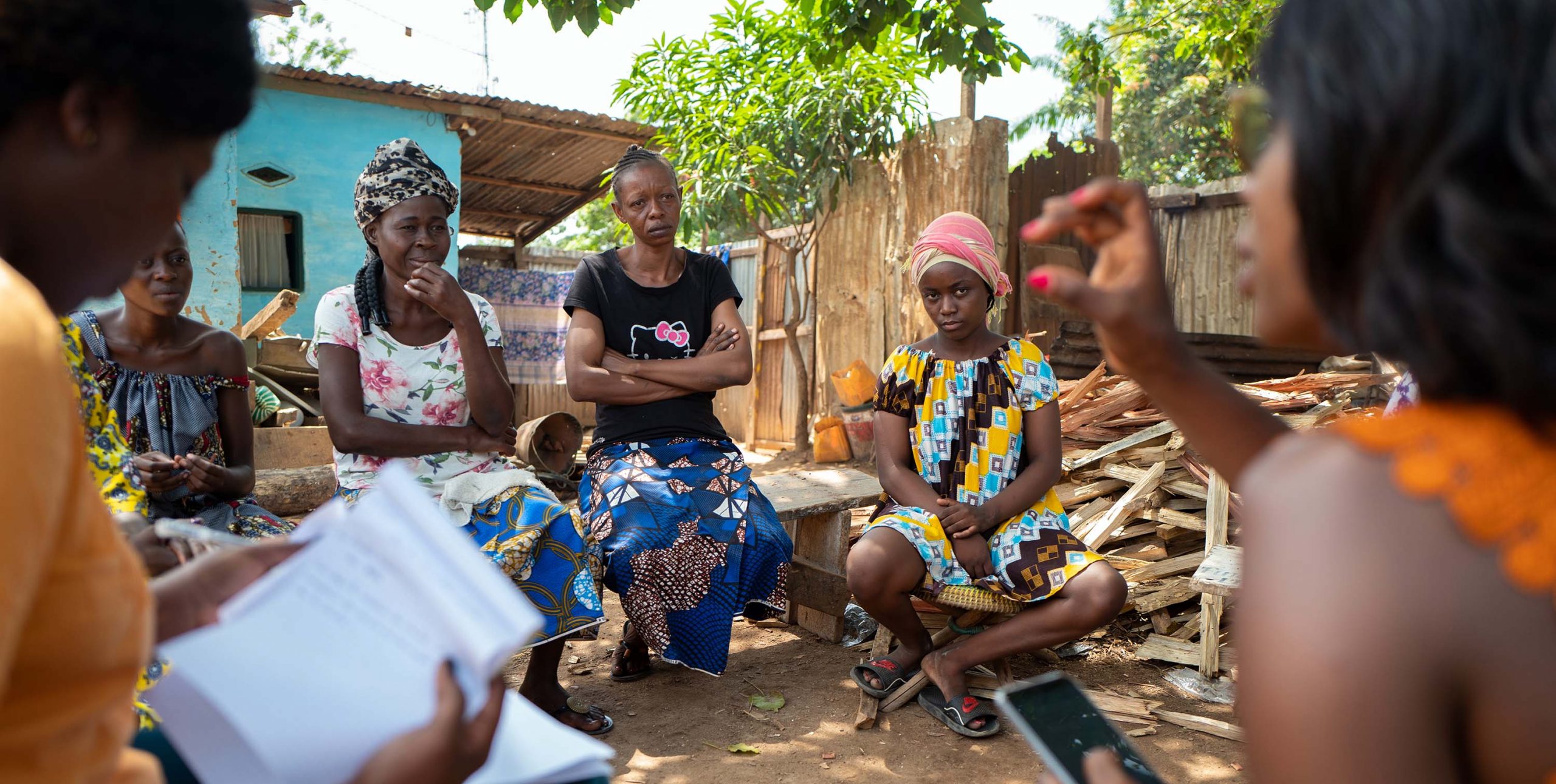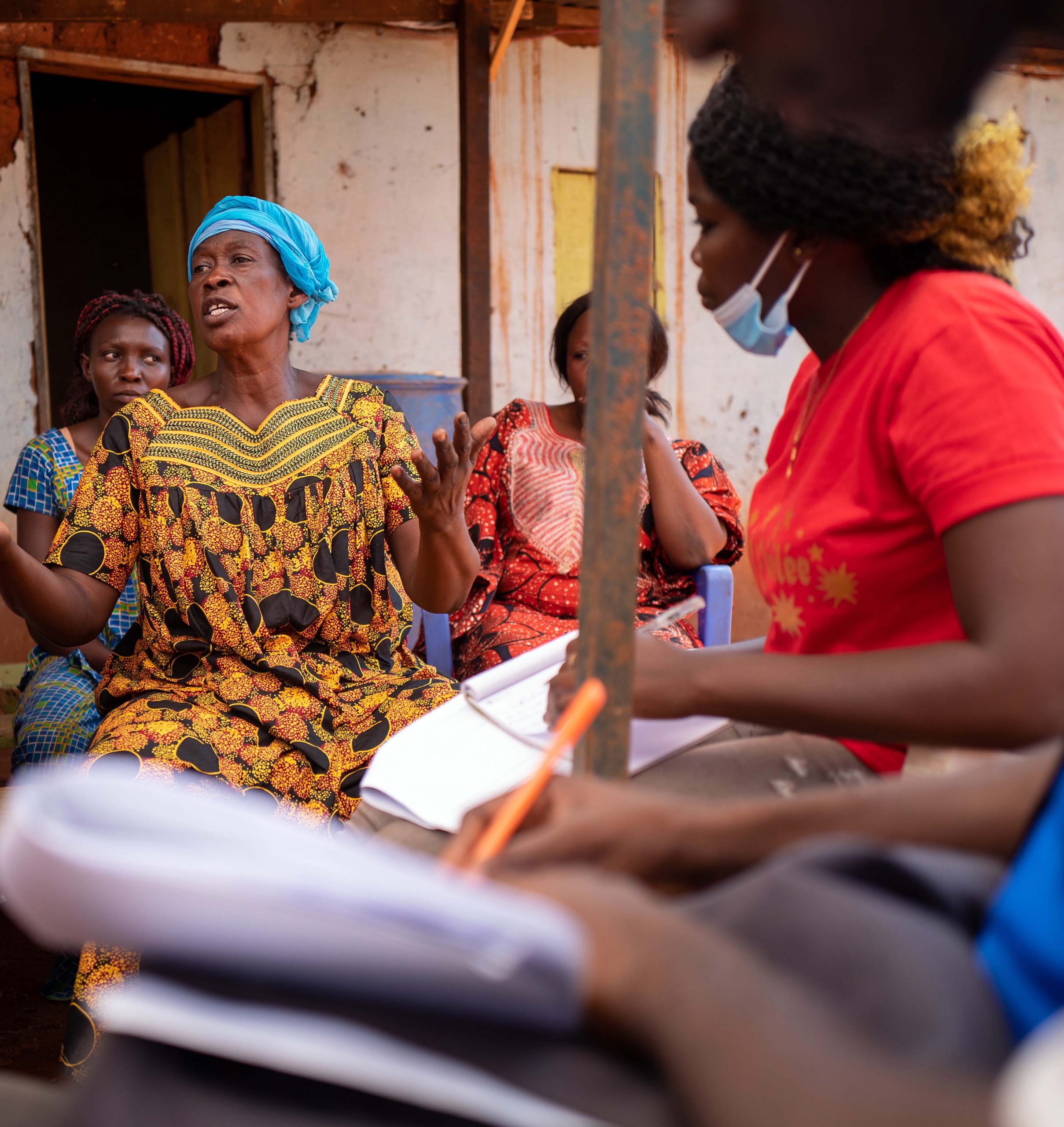MISINFORMATION AND SUSTAINABILITY AT THE HEART OF THE DEBATE
In the world of media research, the year 2021 was marked by issues of misinformation, media sustainability, inclusion of marginalized populations, and the effectiveness of media support.
With the growth of digital spaces, misinformation is finding ever greater resonance. States and non-state actors exploit digital platforms to amplify polarizing content and divisions in the societies they seek to destabilize.
This problem is not limited to social networks and is reinforced by the crisis of confidence in so-called traditional media and journalists. With the Covid pandemic, the economic crisis has led to a drop in advertising investments, which has been combined with the capture of these revenues by the Internet giants. As a study by BBC Media Action has pointed out, the result is a global threat of extinction for public service media.1
This comes as pressure mounts on the media to be more inclusive of their audiences, including more marginalized populations, and to make their journalism more participatory.2
Through its research and development activities, Fondation Hirondelle aims to make its modest contribution to understanding these issues.
On the issue of misinformation, we are collaborating with the Institute for Strategic Dialogue and the Centre for the Analysis of Social Media, based in London, in the development of a tool to monitor (dis)information trends on Facebook. With the ICT for Peace Foundation (Geneva), we have also proposed to Switzerland that it seize the opportunity of its application to the United Nations Security Council to develop the standards of governance of digital spaces.
Concerning media sustainability, we are working with Michel Leroy who is doing a PhD on the subject within the framework of the Medas 21 programme of the Alliance Ruhr University in Germany.3 He is analysing the efforts undertaken by Fondation Hirondelle to ensure the sustainability of its projects and promote this subject in the media support sector.
On the issue of inclusion, we are working with Dr. Emma Heywood, from the University of Sheffield, to better understand the expectations of women and youth regarding our productions in Mali, Niger and Burkina Faso.4 We have also collaborated with Dr. Heywood and Dr. Lassané Yaméogo of the Thomas Sankara University in Ouagadougou on a project to better understand and address the information needs of internally displaced populations in Burkina Faso.5
This study showed that radio plays a protective role, providing a citizen’s watch to assess the security situation; and that it promotes resilience and peaceful coexistence between IDPs and host communities.6
We are breaking new ground in our research methodologies with our first randomized controlled trial (RCT) study conducted in Madagascar with over 7,000 participants randomly assigned to a treatment group to measure the effects of our dialogue programs compared to a control group that was encouraged to listen to a “placebo” program. This study, conducted with Dr. Jeff Conroy Krutz of the University of Michigan in 2021, won the Impact Award 2020 for its innovative design.7
(1) https://ifpim.org/resources/feasibility-study/
(2) Cf. Médiation#8, “Listening to the voices of the public”, https://www.hirondelle.org/
pdfviewer/?lang=en&id=502
(3) This programme funds seven doctorates in media development, including three in
partnership with Fondation Hirondelle, https://www.medas21.net/
(4) https://www.femmepowermentafrique.com/about
(5) https://www.elrha.org/project/internally-displaced-persons-radio-and-covidrelated-
misinformation-in-burkina-faso/
(6) Heywood & Yameogo (2022) La radio et le défi de la mobilisation contre la COVID-19 :
exemple des Personnes déplacées internes à Kaya, Pissila et Kongoussi au Burkina Faso,
Revue RadioMorphoses ; https://eprints.whiterose.ac.uk/182731/
(7) Awarded by the Center for Development and Cooperation at ETH Zurich with
funding from the Swiss Development Cooperation.
Disinformation, economic viability, inclusion: Fondation Hirondelle aims to to contribute to understanding of these major issues of the media sector.

ONGOING RESEARCH IN 2021
• Research in Mali, Niger and Burkina Faso, with Dr. Emma Heywood, University of Sheffield, on Studio Tamani, women and youth empowerment.
• Research in Burkina Faso on Internally Displaced Persons (IDPs), radio and COVID-related misinformation, with Dr. Emma Heywood, University of Sheffield and Dr. Lassané Yaméogo, University Thomas Sankara.
• Evaluation of Studio Sifaka on engaging Malagasy youth through radio dialogue with Dr. Jeff Conroy-Krutz, Michigan State University.
• Evaluation of Radio Ndeke Luka on countering disinformation and promoting democratic and peace process in CAR, with Dr. Jeff Conroy-Krutz, Michigan State University.
• Result chain-oriented impact evaluation : How a radio programme in Niger achieved changes in knowledge, attitudes and practice of listeners about gender, with Christoph Spurk, Guido Keel and Dominique Barth, Institute of Applied Media Studies, Zürich.
• PhDs of the programme Media Development in the 21st Century (MEDAS 21):
– with Michel Leroy on sustainability and professionalization of community radios.
– with Fabiola Ortiz on radio projects and peacebuilding in CAR.
– with Roja Zaitoonie on the UNs’ efforts on media in Peacekeeping operations.

Monitoring, Evaluation, Accountability and Capitalization
In 2021, in accordance with its 2021-2024 strategic objectives, Fondation Hirondelle created a new unit dedicated to improving the quality of its monitoring, evaluation, accountability, and capitalization (MEAC) activities. The objectives of this unit are to develop and maintain our MEAC tools for each of our projects, and to provide technical support to their teams in this regard, from planning to evaluation. Accountability processes to external partners and donors and to our public will be strengthened. Our projects will have systematic access to the information and learning spaces generated by our monitoring and evaluation systems. This new unit will also support the Fondation Hirondelle-wide MEAC system, with regular reports on our 2021-2024 four-year strategy to senior management, and team moments dedicated to learning and reflecting on our results and achievements.
Conferences and Pulications: Our contribution to the global media conversation
Monitoring and responding to misinformation, media and governance, migration and peacebuilding, combating gender stereotypes, information warfare in Africa, media as a catalyst for dialogue: these are just some of the topics we addressed, along with our partners, other media organizations, journalists and researchers, during the conferences, webinars, and workshops in which we participated in 2021. In total, we organized or actively participated in 26 face-to-face and online events during the year.
Our contribution to the global conversation about the role of media and journalism was also reflected in our publications: our biannual Mediation, which gives voice to researchers, journalists, and media practitioners from all walks of life, and whose issues in 2021 were devoted to “Media for Education” and “Media and Violence”; as well as more targeted publications such as our policy paper “Sticking to the Facts, Building Trust: Our Response to Misinformation”. We have promoted this approach even more actively within the media and NGO networks to which we belong, such as the Global Forum for Media Development (GFMD), of which our Executive Director is a member of the Steering Committee.

